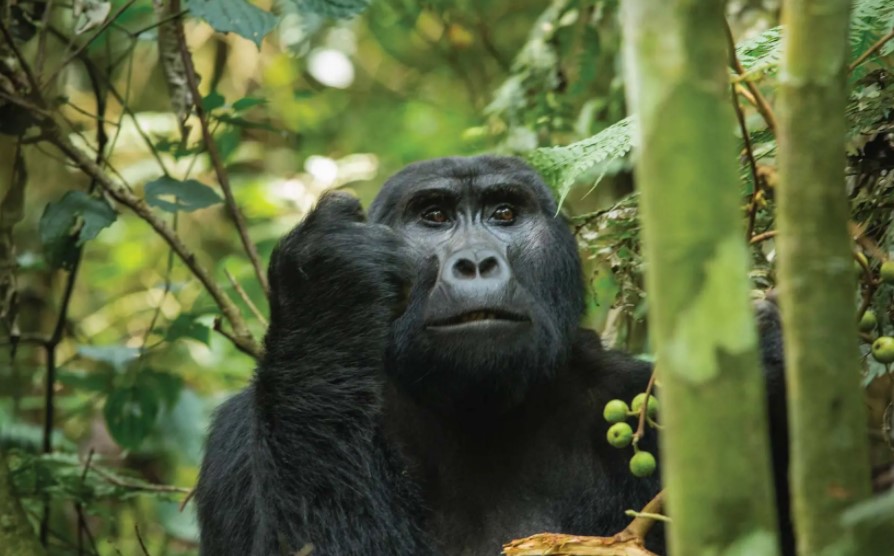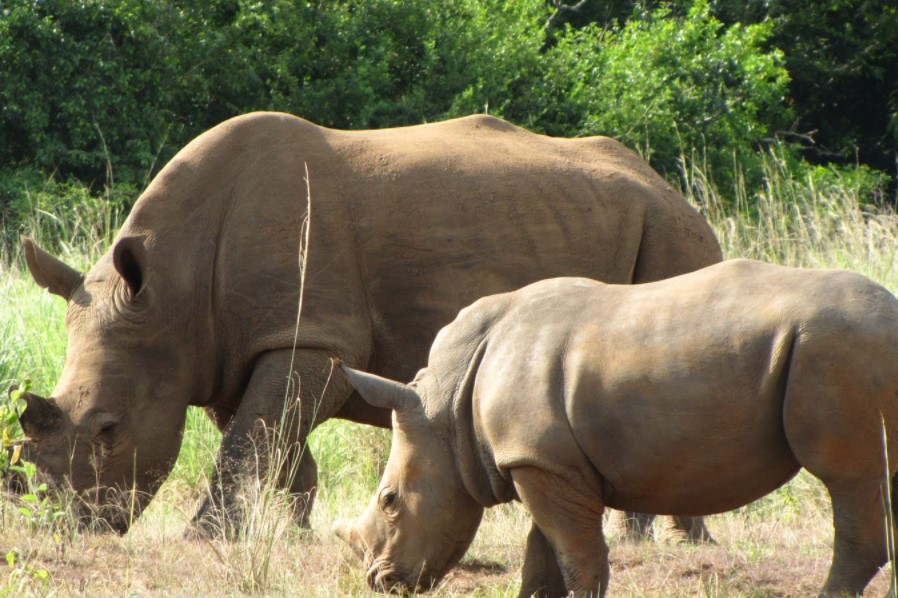What are the common Uganda animal species? listing one of the best destinations in the world and particularly about Africa, Uganda cannot miss the opportunity to list her incredible wildlife biodiversity, which is made up of several species of both fauna and flora. Some of these are permanent residents, while others come and go as they please, whether they are endangered or critically endangered. Most of the rare species on the Africa continent are found in Uganda, and these incorporate the rarest birds, amphibians, mammals, as well as reptiles. What is common, and what has made Uganda famous on the wild map, are the endangered mountain gorillas of Uganda. According to reports, Uganda is home to over 1000 species of birds and 450 species of mammals, making it the most distinct and diverse destination on the planet. The most common animals of Uganda include, among other things,
Endangered mountain gorillas. Uganda is one of only three countries that are home to the critically endangered mountain gorillas, the others being Rwanda and the Democratic Republic of the Congo. The increased conservation efforts have increased the mountain gorillas to more than 500 in Uganda, and the country has the highest number of gorillas in the whole world. Gorilla trekking is very good and the most attractive activity in Uganda. Out of the three countries, Uganda has the most mountain gorillas, estimated to be associated with 500 people out of a total population of 1,063 remaining mountain gorilla creatures. The majority of Uganda’s mountain gorillas live in Bwindi Impenetrable National Park, which is home to roughly fifteen groups of these endangered species, although one family lives in Mgahinga Gorilla National Park, Uganda’s second gorilla habitat. only one hour is available for the visitors to see and endangered mountain gorillas.

Another important and common, well-known animal species in Uganda is called the chimpanzee. Uganda is home to several chimpanzees which are located in several national parks, including the Kibale Forest National Park. Because of the large number of primate species in the recreation area, mainly chimpanzees, Kibale Forest National Park is referred to as the primate capital of the world. Uganda is anticipated to have approximately 5000 chimps living in a few locations across the country. Uganda is the main destination for chimpanzee tracking and, apart from Kibale Forest National Park, chimpanzees can also be easily found in Murchison Falls National Park, Budongo Forest Reserve, Kalinzu Forest Reserve and in Queen Elizabeth National Park. One of the main reasons chimps are so appealing to tourists is their large population, which allows them to be seen by visitors at any time they visit the parks.
Another common animals in Uganda are the Uganda’s big 5 animals which include the big elephants, the buffaloes, leopards, lions, and the rhinos. These animals are found within the savannah national parks which are distributed through the country. Uganda is one of the most popular destinations for big game enthusiasts, with lions, panthers, elephants, bison, and rhinoceros among the most popular species. Apart from rhinoceros, which can be seen on their own at Zziwa Rhino Sanctuary near Nakasongola on the Kampala-Gulu expressway, the other four species can be found in all three of Uganda’s most famous savannah parks: Murchison Falls National Park, Queen Elizabeth National Park, and Kidepo Valley National Park. The vast majority of these significant event animals, particularly bison and elephants, may be observed in extremely large numbers in these parks, which is a major stimulating variable for visitors.
There are also other animals which you can easily see and these also make the common animals of the Uganda. Pronghorns such as the more prominent Kudu, Jackson’s hartebeest, waterbuck, the semi-sea-going sitatunga, Grant’s gazelle, the Uganda Kob, Oribi, and Topi are among the small game species commonly observed inside Uganda’s public parks. Warthogs, zebras, giraffes, hyenas, and edible rodents are among the others.


Comment (0)